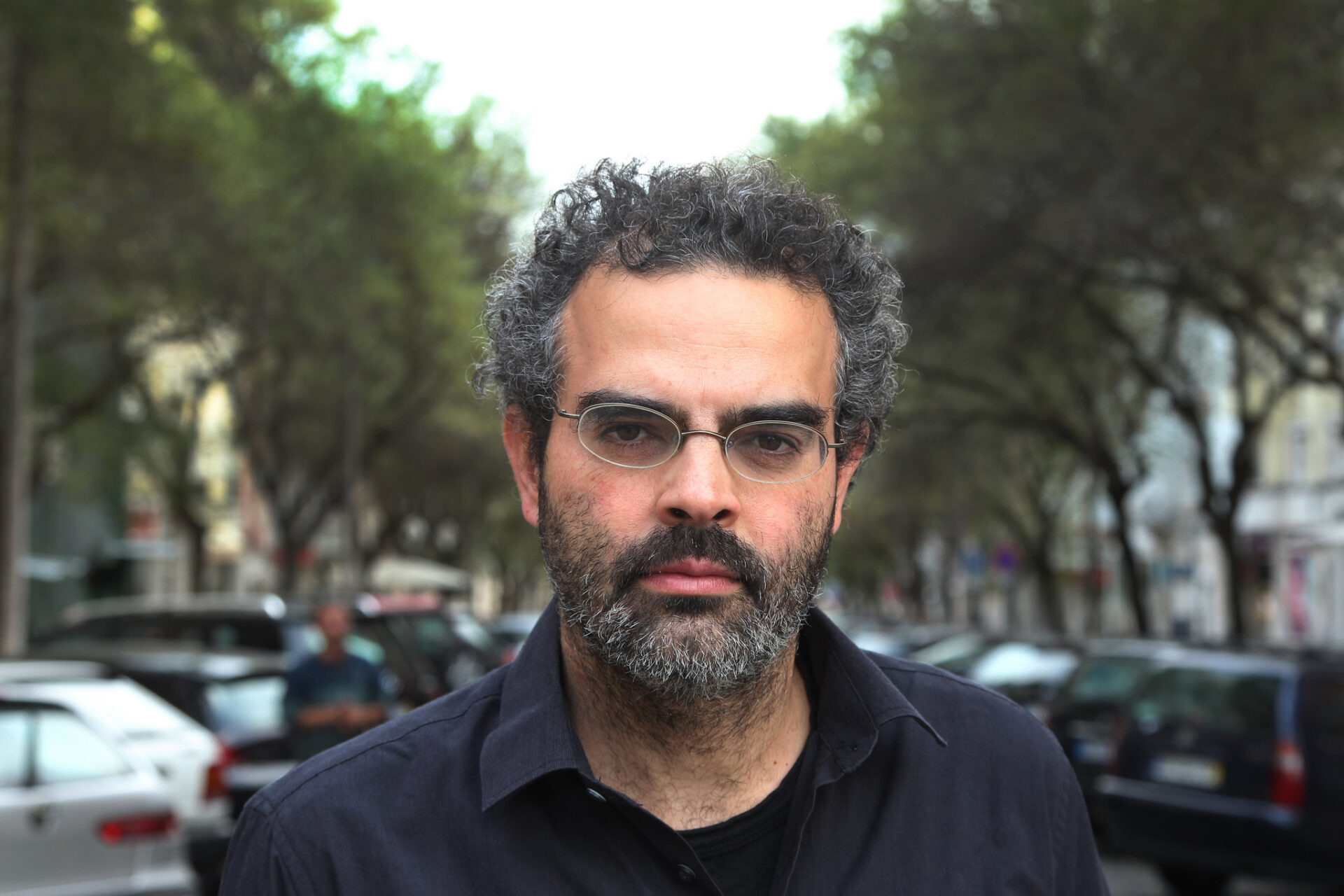Eighteen established writers, one from each city/region, were commissioned to write a chapter in a response to their Arts & Society theme within the context of their city.
Just as Ulysses is innovative in its form and language, so the writers were chosen with a view to reflecting a breadth of genres, styles and innovations. All the (new) chapters from the 18 cities/regions will be brought together in a book to be published in the Autumn 2024: ULYSSES European Odyssey.
Gonçalo M. Tavares wrote Lisbon’s chapter.
Writer’s Statement
Joyce and his language and narrative adventure. All concentrated in one day. And in each of the eighteen chapters is the whole human world: its tragedies and comedies, its ridiculousness and its greatness. Episode 16 of this extraordinary book is no exception. Everything is there. But, amidst Joyce’s irony and sarcasm, themes such as old age and abandonment stand out.
In episode 16 of Joyce’s Ulysses, Stephen and Bloom stay in the coachman’s shelter. A shelter? Actual against bad weather, or some current physical threat? Affective against mistreatment and the memory that cannot be freed from them? Difficult to answer.
This episode is full of stories told by those who pass through the shelter, sober or less sober. And this is also one of the essential points: what stories do the ‘sheltered’ have? It is therefore necessary to have an attentive ear and rest the mouth that issues laws and advice. Listen only to those who seek shelter. What do people “institutionally sheltered” have to say? Like Stephen and Bloom: listen.
The questions posed link to the way we treat the elderly and institutionalised people, which refer to ‘marginalisation, social reintegration and abandonment, aging and generational confrontation’, are all in this universal episode. Perhaps it could be said that, in part, we revisited Joyce’s often humorous, always sarcastic and ironic episode 16 in a more tense and affective point of view. Inverting the classic phrase: seriously returning to the place where irony began. An ever-modern 16th episode that the harsh modern times do not allow us to forget.
Writer’s Biography
Gonçalo M. Tavares was born in Angola in 1970. He hesitated between football and pure mathematics, but his path led him to writing. He is a writer and professor of Theory of Science in Lisbon.
He has surprised his readers with the variety of books he has published since 2001 and has been awarded an impressive number of national and international literary prizes: most notably the Prix du Meilleur Livre Étranger (2010, France), the Special Prize of the Jury of the Grand Prix Littéraire du Web Cultura (2010, France), the University of Lisbon Prize (2019, Portugal) and the Vergílio Ferreira Literary Award (2017, Portugal).
His novel Aprender a rezar na era da técnica (Learning to pray in the age of technology) received the prestigious Prize for the Best Foreign Book in France in 2010. It was also shortlisted for the renowned French literary awards, Femina Étranger Prize and Médicis Prize and won the Special Prize of the Jury of the Grand Prix Littéraire du Web Cultura 2010.
In 2011 Tavares received the renowned Grande Prémio da Associação Portuguesa de Escritores. He was also nominated for the renowned Dutch Europese Literatuurprijs 2013 and was long-listed for the Best Translated Fiction Book Award 2013. He was nominated for the International IMPAC Dublin award 2013 and, most recently, for the Prix Jean-Monnet de Littérature Européenne 2015 and 2019.
Tavares’ work has been published in almost 50 countries.



